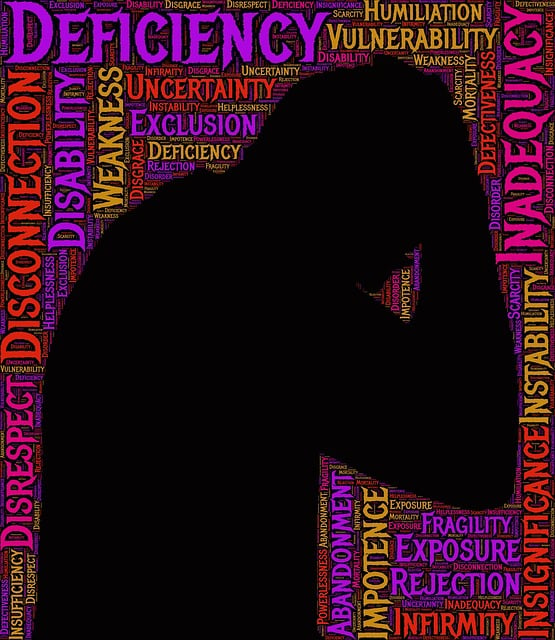Mental health professionals in Boulder, specializing in eating disorders therapy, face diverse client needs driven by both external triggers and inherent vulnerabilities. Effective treatment involves nuanced risk assessment, tailored interventions including mood disorder management, and fostering inner strength. Robust risk management planning, integrating community outreach, open communication, informed consent, dynamic plan adjustments, colleague insights, research findings, and evidence-based practices like Social Skills Training, creates secure, supportive environments. These strategies empower clients to navigate challenges, promote healing, and achieve positive outcomes in Boulder Eating Disorders Therapy.
In the high-stakes field of mental health, effective risk management planning is paramount. From navigating sensitive client populations to addressing complex conditions like eating disorders in Boulder, professionals must be adept at identifying and mitigating potential risks. This article explores crucial aspects of risk management, including understanding unique mental health risk factors, crafting comprehensive plans, implementing safety protocols, fostering open communication, and continually adapting strategies for optimal client care.
- Understanding Risk Factors in Mental Health Practice
- Creating a Comprehensive Risk Management Plan
- Implementing Safety Protocols for Client Care
- Fostering Open Communication and Consent
- Continuous Evaluation and Adaptation for Effective Risk Mitigation
Understanding Risk Factors in Mental Health Practice

Mental health professionals encounter a diverse range of clients with varying complexities and backgrounds, each presenting unique risk factors. Understanding these risks is paramount in effective therapy, especially for conditions like eating disorders in Boulder. Beyond external triggers, such as societal pressures or traumatic life events, inherent vulnerability and coping mechanisms play significant roles. For instance, individuals dealing with anxiety or depression may engage in unhealthy behaviors to cope, inadvertently exacerbating their mental health challenges.
Professionals must be adept at recognizing these subtle cues and assessing risk levels to implement tailored interventions. This involves not only managing mood disorders through evidence-based practices but also fostering inner strength development. By integrating robust risk management planning into treatment modalities, therapists can better equip clients with the tools to navigate difficulties, ensuring a more positive trajectory toward recovery for conditions like eating disorders in Boulder.
Creating a Comprehensive Risk Management Plan

Mental health professionals, especially those specializing in areas like Boulder Eating Disorders Therapy, must prioritize risk management planning to ensure a safe and supportive environment for their clients. A comprehensive risk management plan involves identifying potential hazards within the therapeutic setting, assessing their likelihood and impact, and implementing strategies to mitigate these risks effectively. This proactive approach not only protects vulnerable individuals but also fosters trust and enhances the overall quality of care.
A well-crafted plan should incorporate various elements tailored to the specific needs and challenges of the practice. For instance, it may include policies for managing client crises, procedures for reporting and addressing adverse incidents, and strategies for promoting positive mood management and confidence boosting. Moreover, integrating a Community Outreach Program Implementation can broaden the support network, offering additional resources and enhancing the therapist’s ability to navigate complex cases.
Implementing Safety Protocols for Client Care

Implementing robust safety protocols is an integral part of risk management planning for mental health professionals, particularly those specializing in eating disorders like Boulder Eating Disorders Therapy. These protocols ensure a secure and supportive environment for clients, fostering trust and encouraging vulnerability. By establishing clear guidelines, therapists can proactively manage potential risks and conflicts that may arise during therapy sessions.
Effective safety measures include creating comprehensive client assessment forms, which aid in identifying risk factors and personal boundaries. Additionally, regular check-ins and open communication channels allow professionals to monitor client progress and provide timely interventions. Boulder Eating Disorders Therapy practitioners should also be well-versed in conflict resolution techniques and trauma support services, enabling them to handle sensitive situations with empathy and professionalism, ultimately contributing to successful outcomes for their clients.
Fostering Open Communication and Consent

Fostering open communication is a cornerstone of effective risk management for mental health professionals, particularly those specializing in conditions like eating disorders in Boulder. Creating a safe and non-judgmental environment encourages clients to express their concerns, fears, and boundaries openly. This two-way dialogue allows therapists to better understand the client’s perspective, identify potential risks, and collaboratively develop strategies that align with individual needs. Obtaining informed consent is another critical aspect, ensuring clients are fully aware of the therapeutic process, expected outcomes, and potential challenges they might face during treatment.
This open communication fosters a sense of trust and empowers individuals to take an active role in their recovery journey. By integrating these practices into risk management planning, mental health professionals can better support their clients, enhance therapeutic outcomes, and ultimately contribute to the inner strength development and confidence boosting that is essential for long-term well-being, especially when addressing complex issues like eating disorders.
Continuous Evaluation and Adaptation for Effective Risk Mitigation

Mental health professionals must embrace a dynamic approach to risk management planning, recognizing that client needs and challenges evolve over time. Continuous evaluation is key to identifying emerging risks and adapting strategies accordingly. Regularly reviewing treatment plans, assessment tools, and therapeutic interventions allows practitioners to stay agile in their response to clients’ changing circumstances. This proactive stance ensures that the most effective interventions are deployed, fostering a safe and supportive environment for healing.
By integrating feedback from clients, colleagues, and research findings, mental health professionals can enhance their risk mitigation efforts. Staying abreast of advancements in evidence-based practices, such as Social Skills Training and Mental Wellness Podcast Series Production, empowers therapists to offer tailored support. Moreover, participating in professional development opportunities focused on Mental Health Education Programs Design equips practitioners with the knowledge and skills needed to navigate complex situations with confidence and resilience, ultimately benefitting their clients, like those seeking Boulder Eating Disorders Therapy.
Mental health professionals play a crucial role in fostering resilience and healing, but they must also navigate complex risk factors. By understanding potential hazards, creating robust plans, and implementing safety protocols, therapists can ensure a secure environment for their clients. At Boulder Eating Disorders Therapy, we emphasize the importance of continuous evaluation and adaptation, ensuring our strategies remain effective and aligned with best practices. Through open communication, informed consent, and dynamic risk management, professionals can provide exceptional care while mitigating potential challenges.












